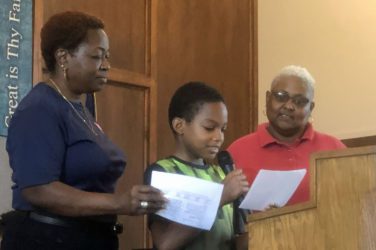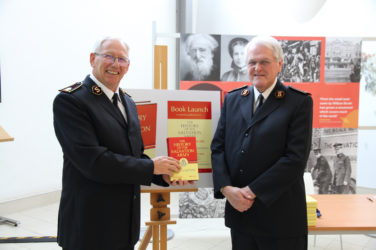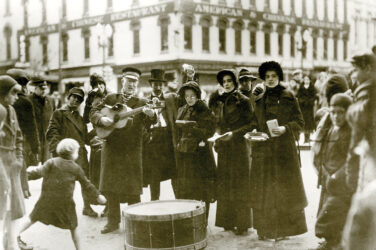Learning about The Salvation Army’s anti-human trafficking efforts with Major Rachele (Ray) Lamont, Caribbean and North American Zonal Modern Slavery and Human Trafficking Response (MSHTR) coordinator, and Priscilla Santos, International MSHTR coordinator.
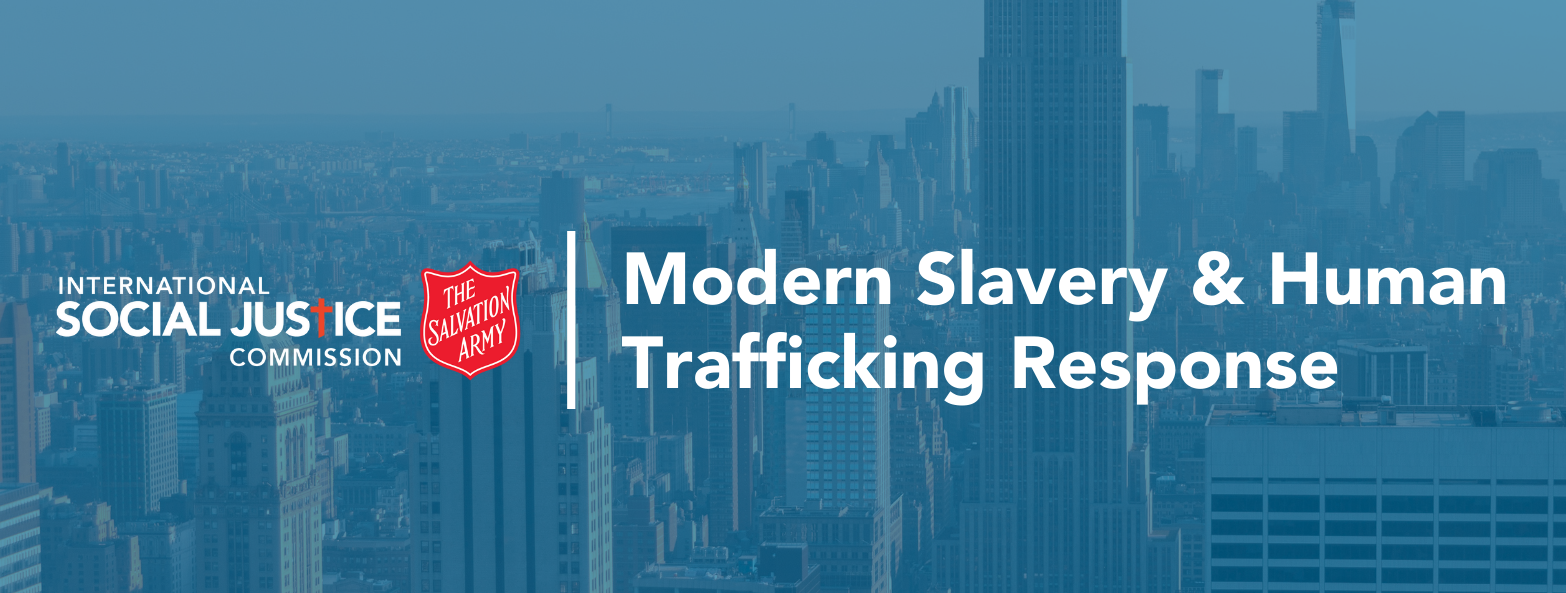
For those who might not know we’re in the fight against trafficking, could you share a little about The Salvation Army’s involvement?
Priscilla: From its beginnings The Salvation Army has responded against modern slavery and human trafficking (MSHT). It’s part of our DNA.
Here are a few examples:
• In 1885, The Salvation Army exposed the entrapment, abduction and sale of young girls and women into London brothels and effectively campaigned for changes in the law for age of consent from 13 to 16 years old.
• In 1891, William Booth opened a Match Factory which provided a living wage and fair working conditions.
• In 1900, within a year of the Salvation Army’s brothel campaign, more than 1,200 girls were freed from slavery in Japan.
In its very structure, being both a church and a nonprofit providing social services, The Salvation Army is positioned uniquely to be holistic and strategic in its response.
What role does prayer play and how should we pray?
Ray: For The Salvation Army, prayer is an essential practice in the fight against MSHT. Prayer is at the center of the work we’re doing and sets the foundation as we step into areas of response. Prayer gives people a way to gain God’s perspective and guidance in complex situations. It keeps us in relationship with Him and empowers our work.
Through seeking God’s face and direction, we will see the brokenhearted restored, captives set free, and prisoners released from darkness (Isaiah 61:1). Prayer will continue to bring us back to a place of complete and utter dependence on God as He leads, guides and empowers us in this work to end MSHT.
There are some outstanding resources to help guide us in how to pray about this injustice. SA Justice has some great prayer prompts, worship resources (including a prayer section), and a 31- day devotional that can be found on the SA Justice website (sajustice.us). I highly recommend them to those who want to pray about this but are struggling to figure out how to start.
How does The Salvation Army’s presence in 133 countries aid this critical endeavor?
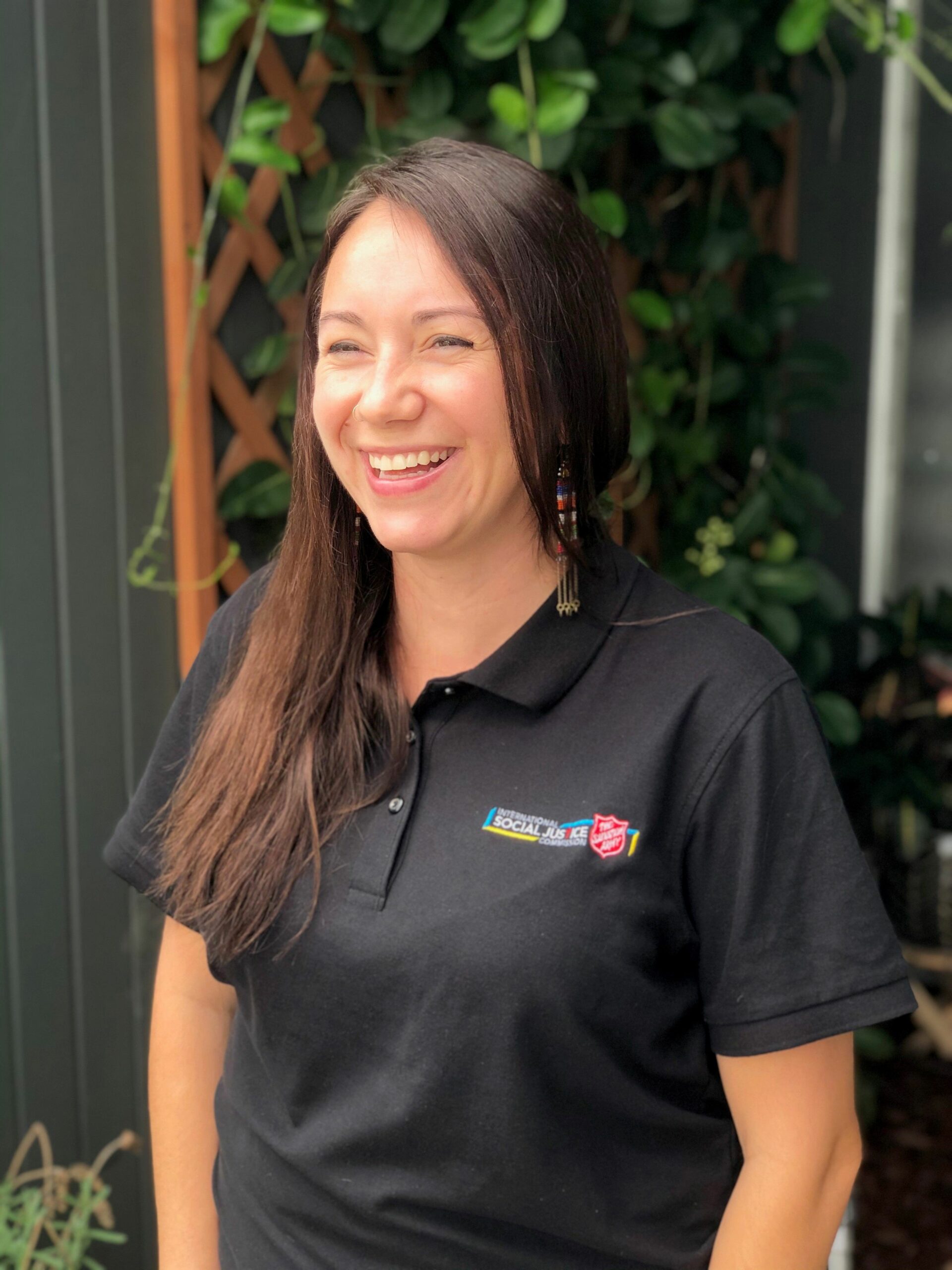 Priscilla: Our global reach is part of our unique collective strength. As MSHT is an international crime, we are an international Salvation Army. As traffickers can mobilize across country lines, so can The Salvation Army. Around the world, The Salvation Army has the passion, people and resources to help stop this evil trade and exploitation of our brothers and sisters.
Priscilla: Our global reach is part of our unique collective strength. As MSHT is an international crime, we are an international Salvation Army. As traffickers can mobilize across country lines, so can The Salvation Army. Around the world, The Salvation Army has the passion, people and resources to help stop this evil trade and exploitation of our brothers and sisters.
One practical way this expresses itself is how we’re able to support survivors requesting to return and reintegrate back home. We are leveraging our global reach to meet the real life needs of survivors.
What are we seeing happen because of Fight for Freedom, our international strategy to mobilize Salvationists?
Priscilla: Through our efforts to strengthen our responses, we are seeing MSHT response leaders being appointed and confidently leading, the educating and equipping of personnel worldwide, the mobilization to respond holistically internally, and the expansion of our global network.
Part of the framework talks about partnerships. How important are they and who are we joining with?
Ray: Partnerships are absolutely crucial and necessary to ending modern slavery and human trafficking. This is such a huge injustice, and a huge work. It’s something we can’t do on our own. We need to be intentionally collaborating and standing shoulder to shoulder with other organizations, faithbased communities, governments and civil actors (those who work to make a difference in their communities) who share the same values and mission.
As well, we need to internally partner with different departments, locations and focuses as MSHT touches our shelters, thrift stores, food banks, adult rehabilitation centers, corps, children’s and youth work, etc. Together, we can make a difference. Together, we can prevent and end MSHT. But we can’t do it alone.
What kind of an impact are we making?
Priscilla: In 2021, we globally served 9,795 survivors. Around the world 100 percent of territories are active in prayer, and 93 percent of territories/commands are active in prevention through raising awareness.
How can the individual Salvationist get involved?
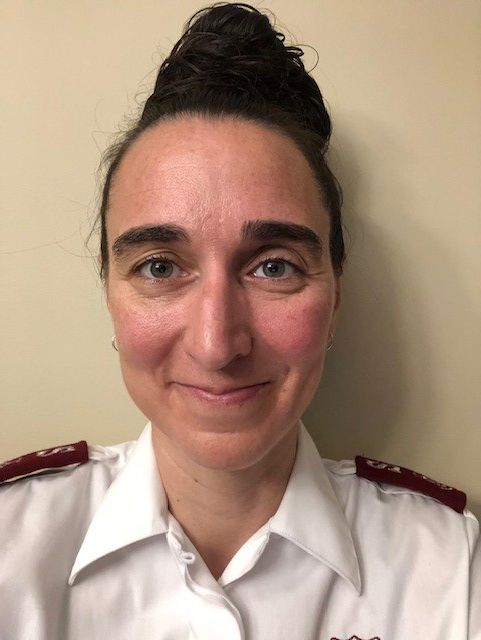 Ray: There are many ways people can make a difference right where they are. First, I encourage people to get informed, learn the basics about MSHT. The four U.S. territories provide a great introduction certificate that can be taken online alongside webinars to help educate and raise awareness about this issue. This certificate is super helpful and practical for soldiers, staff and volunteers.
Ray: There are many ways people can make a difference right where they are. First, I encourage people to get informed, learn the basics about MSHT. The four U.S. territories provide a great introduction certificate that can be taken online alongside webinars to help educate and raise awareness about this issue. This certificate is super helpful and practical for soldiers, staff and volunteers.
I also highly recommend they learn about the methods of recruitment, signs and risk factors so they’re able to identify “red flags” in their interactions with people, whether in their ministry unit, outreach or daily lives.
Know the national human trafficking hotline: 1-888-373-7888
Look at the ministries and programs your corps offers and ask, “How can I tweak it and add information about MSHT?” so it’s not only fulfilling its purpose but it’s also informing and hopefully preventing MSHT.
This could look like providing internet safety training in an afterschool program or teaching parents in a mom and tots group how to have age-appropriate conversations about body safety and safety networks. A men’s group could share about the harms of pornography and provide support for those who are struggling. There are many easy ways to tweak current programming to incorporate MSHT awareness and prevention. Territorial and divisional contact persons for MSHT are more than willing to talk and help support.
As well, donations could be made to a MSHT response ministry. It makes a difference.
What is giving you hope?
Ray: So many things give me hope as I do this work. Here are a few:
• Knowing God has not created people to be enslaved (think of the Israelites and the Exodus story). He is a God who is mighty to save. He has created us to be free in every sense of the word. Hallelujah!
• Seeing people who have exited MSHT move toward healing and become leaders in ending MSHT
• Seeing more and more people getting educated and informed and stepping up to be part of the solution
• Hearing the stories of hope, resilience and beauty from people who have exited a MSHT situation as they find safe places and people who support and journey with them
• Seeing new initiatives to provide prevention, protection and support work
• Watching God as He breathes life in this area into the church and helps us realize we have work to do to end MSHT.
What have you learned about God, faith and hope through this ministry?
Priscilla: I’m reminded constantly in this ministry how God is moving and transforming lives through people. He wants to use everyone, everywhere to make shalom and the Kingdom of God a reality to so many, and in our ministry—those who have experienced and/or on the margins of exploitation and MSHT. It doesn’t matter where you live in the world or your social, legal, or economic status—God wants to partner with me, with you, with The Salvation Army, to bring freedom and liberation.
Ray: God constantly reminds me He is in control and I just need to get out of the way and let Him be God and do what He is so amazing at doing: binding up the brokenhearted, proclaiming freedom for the captives, releasing prisoners from the darkness, proclaiming the year of the Lord’s favor, comforting all who mourn, bestowing a crown of beauty and garment of praise to His people.

